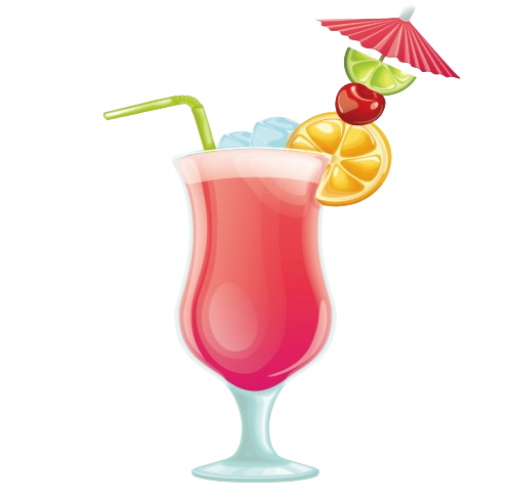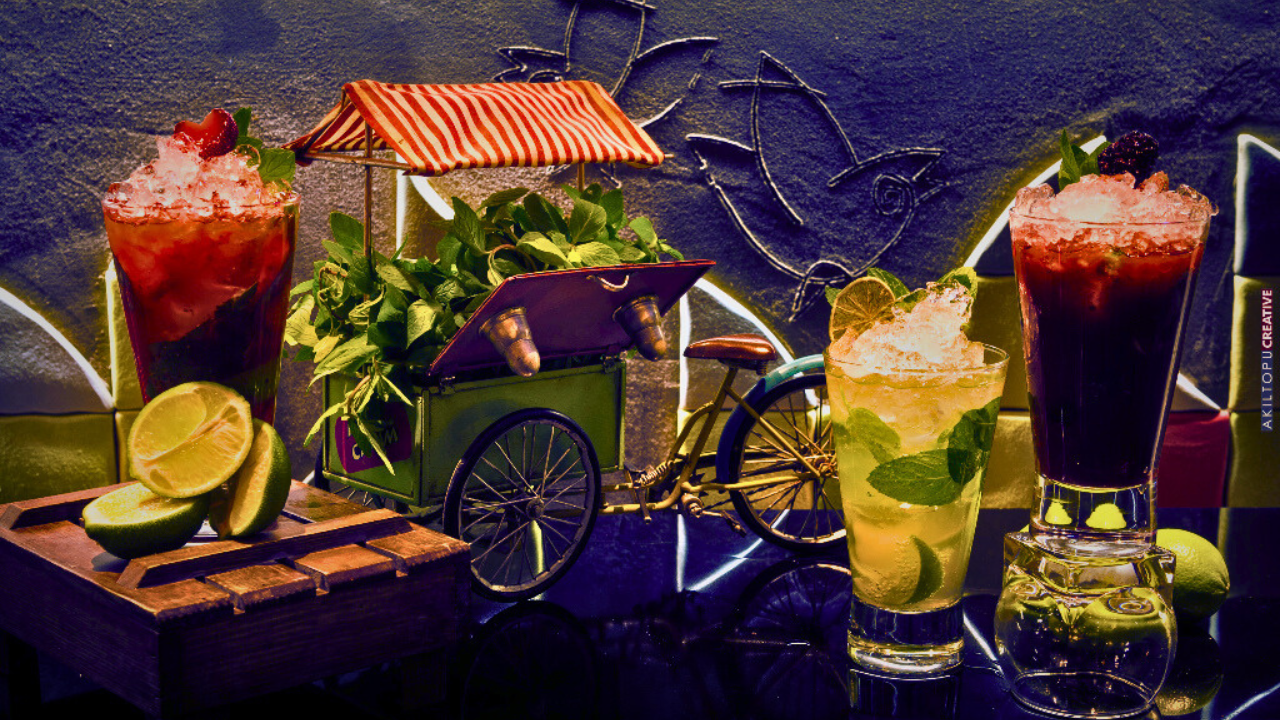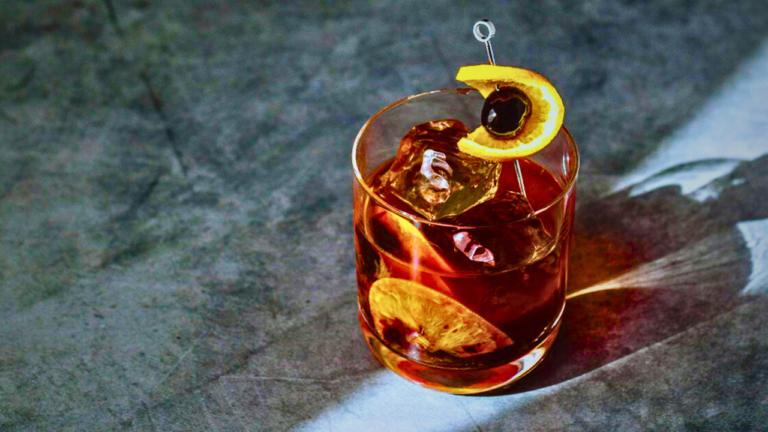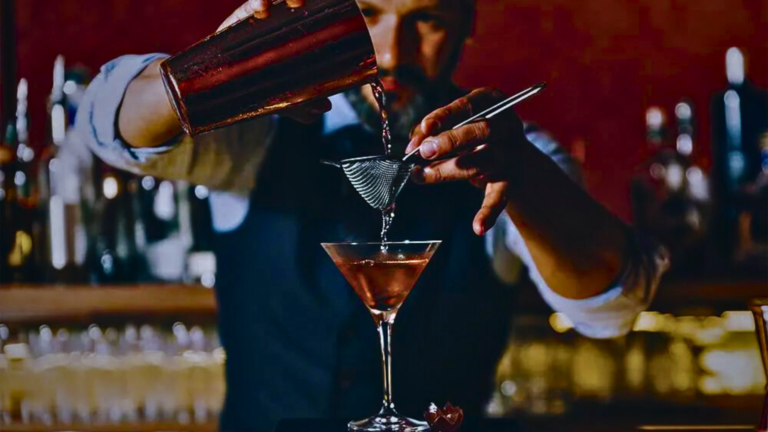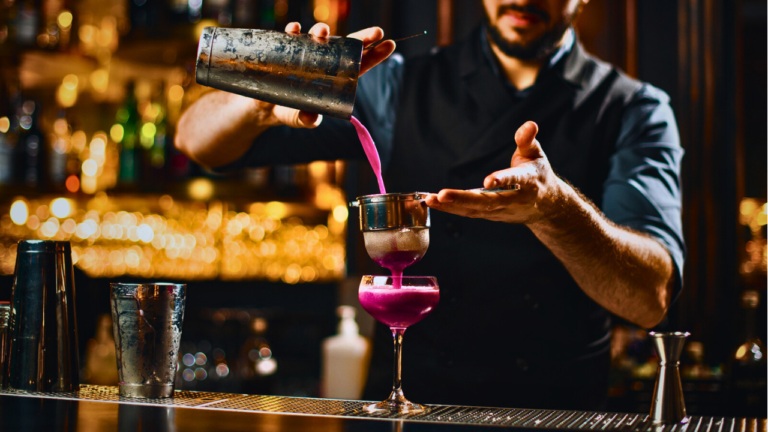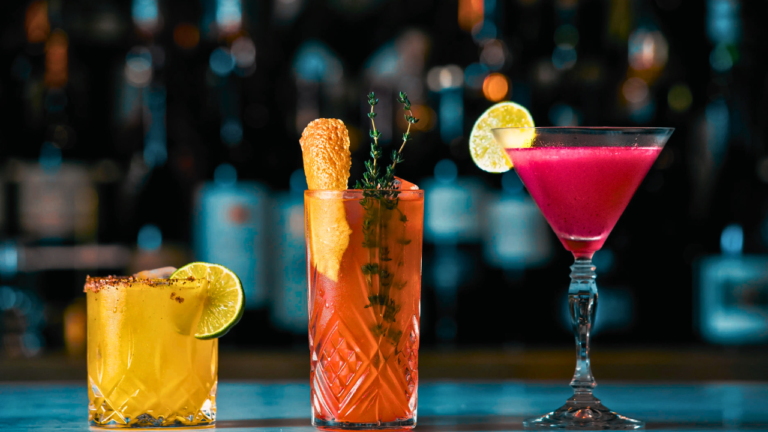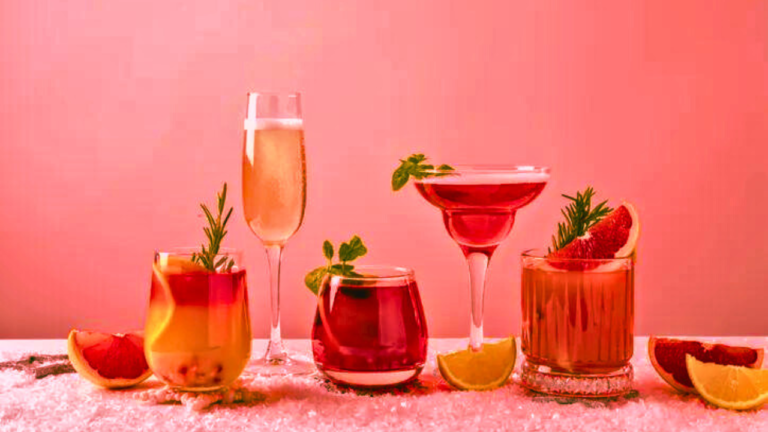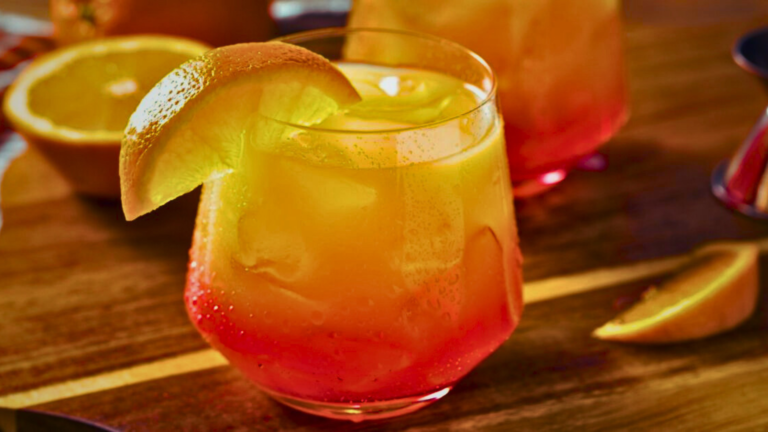Why Are Mixed Drinks Called Cocktails?
You’re at a party, drink in hand, and suddenly you find yourself wondering. Why is your mixed drink called a ‘cocktail’? Well, you’re in luck, not just because you’re enjoying a drink but also because we’re just about to delve into this enticing topic. Let’s dip into the intriguing history and speculation surrounding the naming of this popular type of beverage.
Origin and Evolution of the Term ‘Cocktail’
Isn’t it fascinating that a term used so casually and universally today was born out of centuries of evolution, experimentation, and cultural exchange? The term cocktail has its own unique story, with as much intriguing mix as the drinks it denotes.
“The roots of the cocktail are a complex maze, not a straight line to a single source. It is impossible to talk about the origins without exploring the vibrant world of drink in which it was born and raised.” – David Wondrich, renowned cocktail historian.
Speculations About the Origin of the Term
Speculations and theories about why mixed drinks are called cocktails are abundant. Each seems to offer a more entrancing tale than the last. Some believe it to be named after a rooster’s tail (or ‘cocktail’), while others speculate that it came from a mispronunciation of a French term. Let’s explore these theories more in depth below.
Read also: What’s The Difference Between Cranberry Juice And Cranberry Cocktails?
What is the origin of the term ‘cocktail’?
Unveiling the origins of the term ‘cocktail’ is quite akin to peeling back the layers of a history-laden onion. There are many theories, but one of the most widely accepted comes from the American Revolution.
In the 18th century, it’s believed the term referred specifically to a mixed drink comprised of spirits, sugar, water, and bitters. Essentially, some of the earliest cocktails were what we’d now consider old-fashioned.
It’s commonly suggested that the name stems from the practice of using a ‘cock’s tail’ to stir the drink. However, while the story is prevalent in popular culture, it has less historical documentation to support it.
More emphasis has been placed on the theory that it was derived from the French term ‘coquetel’, an egg-cup measure of brandy mixed with bitters, popular during the French colonization of Louisiana.
A bit of a linguistic leap, but stay with us here. The notion is that English speakers mangled ‘coquetel’ into ‘cocktail’. Whether this is true or not, one thing is clear: by the early 19th century, the term cocktail had staked its claim in American vocabulary and was being used to describe a wide variety of mixed alcoholic drinks.
Of course, these aren’t the only theories about the origin of the term ‘cocktail’. Some other possibilities include:
- The drink’s name was inspired by the decoration of cocktail roosters’ tails in English taverns .
- It may have derived from the practice of putting a cock’s tail feather in a drink as an indicator of its potency.
- It was named after a mixed-breed horse called a ‘cocktail’, with the idea that the drink is a blend of different spirits, just as the horse is a mix of different breeds.
Each theory connects fascinating facets of history and culture, from American colonization to horse breeding. This uncertainty about the term’s origins only adds to the mystique and charm of the cocktail. No matter which theory you believe, it’s clear that the term ‘cocktail’ has a long, rich, and somewhat contentious past.
Which mixed drinks were first referred to as cocktails?
In the early days, the term “cocktail” referred to a specific type of mixed drink. It wasn’t the all-encompassing term we use today to refer to any mixed beverage. So, let’s take you on a little trip down the history lane of mixology.
The first mention of a cocktail came in an 1803 newspaper publication from Amherst, New Hampshire. It referred to a cocktail as a potent concoction of spirits, bitters, water, and sugar. But it was in 1806 that the drink got a more definitive description.
The Balance and Columbian Repository, a newspaper from Hudson, New York, identified a cocktail as a stimulating liquor, composed of any kind of sugar, water, and bitters, and considered a prop during elections.
The original cocktail, as detailed in this publication, was likely a potent drink designed to be taken first thing in the morning. The base spirit was typically whiskey, brandy, or rum, and the essential ingredient was bitters—herbal concoctions used medicinally and for flavoring.
Here are a few examples of what could be considered the earliest cocktails:
- Sazerac: This is arguably the first branded cocktail. Its creation is credited to Antoine Amédée Peychaud, a New Orleans apothecary. He would mix Cognac with his own Peychaud’s bitters and serve it in an egg cup called a coquetier (pronounced “ko-k-tay”), a term some say may have morphed over time into the word “cocktail.”.
- Old Fashioned: Ironically, the Old Fashioned is so named for its simplicity and adherence to the original definition of a cocktail. This drink typically comprises whiskey, sugar, water, and bitters.
- Mint Julep: Aside from the traditional spirit, water, sugar, and bitters, this drink adds fresh mint for a refreshing twist. It has become a classic staple cocktail, especially in the southern United States.
In the following years, the definition of a cocktail broadened to include a much wider variety of mixed drinks. Modern cocktails often feature ingredients like soda, cream, fruit juices, and other flavor enhancers, but the spirit of the original cocktail remains in the balance of strong, weak, sweet, and bitter elements.
Read also: What Are Your Favorite Rum And Lemon Juice Cocktails?
What cultural or historical factors influenced the naming of cocktails?

The practice of calling mixed drinks ‘cocktails’ certainly wasn’t an arbitrary decision. Various cultural and historical factors influenced this naming convention, giving us a glimpse into the social fabric of the era. You’d be surprised by how much a name could reveal!
Let’s dive into some of these influencing factors and see how they played a part in shaping the cocktail culture.
- The Prohibition Era: One of the most interesting periods in American history, the Prohibition era was when the production, sale, and consumption of alcoholic beverages were prohibited. During this period, people resorted to mixing different drinks to camouflage the flavor of the poorly-made bootleg alcohol. This further increased the popularity of the mixed drinks we now commonly refer to as cocktails.
- Social Receptions and Gatherings: The early 19th century witnessed an increased association of cocktails with social events, parties, and receptions. Serving a bespoke blend of alcohols became a showcase of one’s sophistication, creativity, and social status, thereby further cementing the term ‘cocktail’ in public consciousness.
- Cultural Exchange: As globalization took center stage, different alcoholic concoctions from various corners of the world started influencing the cocktail culture. Drinks like Mojito, Pina Colada, and Margarita have roots in different cultures but have made their way into the global cocktail menu, displaying the influence of cultural exchange in shaping the cocktail scene.
To say the term ‘cocktail’ is a simple linguistic evolution would be an understatement. It’s a reflection of changing social mores, laws, and times! Isn’t it fascinating how a cocktail is not just a drink but a symbol, a slice of history served in a glass?
How has the definition of ‘cocktail’ evolved over time?
We’ve come a long way from the initial understanding of cocktails as a blend of “spirits, sugar, water, and bitters” to the diverse array we see today. In the early days, cocktails represented a specific class of mixed drinks. However, over the centuries, the definition of “cocktail” has evolved and broadened to encompass a vast range of alcoholic blends.
Let’s take a little journey back in time and trace the evolution of the word “cocktail.”.
- 19th Century: The cocktail landscape in the 1800s was relatively simple. A cocktail was primarily a morning beverage, created using distilled spirit, sugar, water, and bitters. This definition was clearly stated in an 1806 edition of The Balance and Columbian Repository, a publication in Hudson, New York.
- Early 20th Century: As the Prohibition era dawned, the cocktail underwent a transformation. The necessity to mask the inferior taste of homemade alcohols led to the addition of more flavors and ingredients. The old rules gradually gave way, and the cocktail repertoire expanded.
- Mid-20th Century: The mid-20th century saw the rise of Tiki cocktails, an entirely different breed of exotic concoctions that predominantly used rum and tropical fruit juices. The cocktails began to gain a reputation as complex and sophisticated creations.
- End of the 20th Century to Present: Today’s definition of a cocktail is quite encompassing. A cocktail can be any mixed drink that uses two or more ingredients, one of which should typically be alcohol. Modern cocktails can include variations such as martinis, old-fashioneds, margaritas, mojitos, and cosmos, just to name a few.
In essence, the “cocktail” of the 19th century was a distinct formula that has evolved and fragmented into various subcategories, each with its own characteristics and nuances. This evolution not only reflects changes in drinking habits but also mirrors broader shifts in society, including trends in fashion, music, and popular culture.
While classic cocktails continue to be beloved, the ongoing exploration of flavors, techniques, and presentation signifies a vibrant and diverse cocktail culture. So, here’s to the cocktail, an ever-changing symphony of flavors that continues to redefine itself while offering us a sip of history!
Are there any popular theories or legends surrounding the name ‘cocktail’?

Indeed, the term ‘cocktail’ is shrouded in numerous tales and theories, each as intriguing as the last. Let’s embark on a journey through some of the most widely recognized ones.
- The Bittered Sling Theory: One idea traces the origin of the term ‘cocktail’ back to the early definition of the drink. In the 19th century, a mixed beverage was often a concoction known as a ‘bittered sling”—a simple blend of spirits, water, sugar, and bitters. Sporting a ‘cocktail’ of ingredients, this could be where the term originated!
- The Aztec Princess Theory : Folklore has it that the name ‘cocktail’ comes from an Aztec princess named Xochitl, who served a mixed drink to American soldiers. The drink was so refreshing and unique that it was named ‘cocktail’ in honor of the princess.
- The Cock Ale Theory: A rather unusual theory involves the medieval practice of brewing something called ‘cock ale’. This strange brew combined ale with a castrated rooster, spices, and other ingredients in a tub, left to ferment. Over time, it’s possible the term evolved from ‘cock ale’ to ‘cocktail’.
- The Coquetel Theory: Fans of this theory suggest ‘cocktail’ originated from the French term ‘coquetel’, an eggcup that was often used to serve spirits. As American soldiers returned from France after the Revolutionary War, along with their liberty, they brought back the coquetel. As pronunciation changed over time, ‘coquetel’ may have gradually morphed into ‘cocktail’.
These theories, while entertaining and full of historical flavor, remain speculation. The complexity of language evolution makes pinpointing the exact origin of a term like ‘cocktail’ a tricky task. Nevertheless, the fascinating possibilities add to the mystique and appeal of our favorite mixed drinks!
Read also: How Much Is A Dash When Making A Cocktails?
Conclusion
In conclusion, the enthralling world of cocktails offers more than just a liquid trip to flavor town. It’s a rich tapestry woven from intriguing tales, speculations, and theories about its naming and evolution. Did you know that the moniker ‘cocktail’ has its roots entwined with classic tales from the prohibition era, breezy taverns, and the clinking glasses of aristocrats?
One cannot help but marvel at the creativity and naming sense of our predecessors. Mixed drinks, now called cocktails, have been redefined multiple times throughout history, yet the primary essence remains: to create a harmonious balance of taste, technique, and presentation.
Remember the feather garnishing theory? It’s amazing how an ordinary occurrence, like a rooster’s feather in a drink, might have contributed to the naming of cocktails. The bittersweet taste, much like the rooster’s crow at dawn, was a memorable attribute, potentially lending to the name ‘cocktail’.
By the same token, the usage of the term ‘cocktail’ from the early horse-trading practices paints an interesting picture of the times. Can you imagine the antique glasses filled with a concoction of spirits, sugar, water, and bitters being referred to as ‘cocktailed’ horses?
“No matter where you fall in the realm of theories, the term ‘cocktail’, has retained its appeal and resonance throughout the centuries. And we can all clink our glasses to that!”
Whether it’s the spicy Bloody Mary, the zestful Margarita, or the classic Manhattan, these concoctions have stories to tell, with each sip inviting you to delve deeper into the fantastic realm of cocktails!
Cheers to the continued evolution and rich history of cocktails!
FAQs
Why is a cocktail called a cocktail?
The exact origin of the term ‘cocktail’ is unclear, but many theories suggest it came from the 19th century. One popular speculation links the name to the practice of decorating drinks with the feathers of a cock’s tail.
What were the first mixed drinks called cocktails?
The first drinks referred to as cocktails were likely a mix of spirits, water, sugar, and bitters—aa concoction known as a “bittered sling.”.
Are all mixed drinks cocktails?
Not necessarily. While a cocktail is a type of mixed drink, not all mixed drinks are cocktails. For a mixed drink to be a cocktail, it must contain two or more ingredients, with at least one being alcohol.
What cultural factors influenced the naming of cocktails?
The naming of cocktails has been influenced by a range of cultural factors, including the prohibition era, global wars, and the rise of cocktail culture in the 20th century.
How has the definition of ‘cocktail’ evolved over time?
While initially a cocktail referred to a specific blend of spirits, water, sugar, and bitters, it has evolved to refer to virtually any mixed drink with alcohol.
Who was the first to use the term ‘cocktail’?
The first recorded use of the term ‘cocktail’ can be traced back to an 1806 American newspaper, The Balance and Columbian Repository.
Are there any popular legends surrounding the name ‘cocktail’?
Yes, including one about a tavern keeper who served French soldiers mixed drinks garnished with tail feathers from her rooster during the American War of Independence.
What are some examples of classic cocktails?
Examples of classic cocktails include the Old Fashioned, Martini, Margarita, Mojito, and Cosmopolitan, among others.
Does ‘cocktail’ refer to both alcoholic and non-alcoholic drinks?
No, generally, the term ‘cocktail’ refers exclusively to mixed drinks containing alcohol. Non-alcoholic equivalents are often referred to as ‘mocktails’.
Why are cocktails often served in special glassware?
Special cocktail glassware can enhance the flavors and aromas of the drink, improve the presentation, and add to the overall drinking experience.

Hello, friends! I’m Tom Elba, the driving force behind cocktailscape.com, your virtual hub for all things cocktails. If you have a passion for mixology or simply enjoy sipping on a well-crafted drink, then you’ve landed in the right place.
At Cocktailscape, I’m dedicated to sharing my love for the art of cocktail-making through tantalizing recipes, expert tips, and vibrant stories from the world of mixology. Whether you’re a seasoned bartender or an enthusiastic home cocktail enthusiast, there’s something here for everyone.
From classic concoctions like the Old Fashioned and the Martini to innovative twists and modern creations, I’m here to inspire you to shake, stir, and sip your way through a world of flavor.
But Cocktailscape is more than just recipes—it’s a celebration of culture, creativity, and community. I delve into the history behind iconic cocktails, explore emerging trends in the industry, and spotlight talented bartenders from around the globe.
So whether you’re looking to expand your cocktail repertoire, host the perfect soirée, or simply unwind with a refreshing drink after a long day, Cocktailscape has got you covered. Cheers to endless possibilities and unforgettable sips—let’s raise a glass together at cocktailscape.com!
